The calendar we use today, with its marking of a new year on January 1, derives from Roman practice. In particular, in the first century BCE, Julius Caesar introduced the month of January as the beginning of the year (named after Janus, the Roman god of transitions). The widely shared application of this calendar throughout the Roman Empire made it the basis for timekeeping in the church when the Empire became Christian. The readings for today address time as a universal experience but also compare people’s limited, temporal condition to God’s eternity.
The First Reading
Ecclesiastes 3:1-13
God Establishes the Rhythms of Life
The book of Ecclesiastes states that, contrary to what we generally imagine, we have little or no control over the world in which we live. Rather, everything that life holds and its opposite has a fixed time, which is determined by God and independent of our own actions and desires. The best we can do, therefore, is to find joy in all we undertake, realizing that everything we achieve is a gift from God, not a necessary consequence of our own labors.
—
- Under heaven, everything has its season; every purpose, its time:
- A time to give birth and a time to die.
A time to plant and a time to uproot what is planted. - A time to kill and a time to heal.
A time to tear down and a time to build. - A time to cry and a time to laugh.
A time to wail and a time to dance. - A time to toss aside stones and a time to gather stones.
A time to hug and a time to keep far from hugging. - A time to seek and a time to abandon.
A time to keep and a time to toss aside. - A time to rip and a time to sew.
A time to keep silent and a time to speak. - A time to love and a time to hate.
A time for war and a time for peace. - What do those who work gain by their labor?
- I have seen the things God gave humans with which to busy themselves.
- God makes everything beautiful in its season; God placed in the human heart a conception of the whole, even though no person can discover everything that God does from time’s beginning and until the end.
- I know that nothing is better than to be joyous and do good while alive,
- and also that, whenever a person eats, drinks, and sees success from labor—this is a gift from God.
The Psalm
Psalm 8
Humankind’s Unique Place within Creation
This hymn of praise recognizes God’s creation of heavens and earth and thanks God for the glorious position granted to humankind, which is given responsibility for all that is in the sky, earth, and sea. The reference to God’s putting an end to “the enemy and avenger” is obscure. The psalm may be referring to God’s conquest of primordial forces of chaos or of the great sea-monsters that are mentioned elsewhere in Scripture and in non-Israelite creation narratives.
—
- To the conductor, on the gittith, a psalm of David.
- Lord, our master, how glorious is your name throughout the earth,
for you have placed your splendor upon the heavens— - from the mouths of children and nursing infants.
You established a refuge on account of your adversaries,
to put an end to the enemy and avenger. - When I look at your heavens,
the work of your fingers,
the moon and stars that you set in place— - what are humans that you are mindful of them,
mortals that you pay them any heed? - For you made them to lack only a little from divine beings,
crowning them with honor and splendor. - You gave them control over your handiwork;
you placed all things under their feet— - all sheep and oxen,
and also beasts of the field, - birds of the heavens and fish of the sea,
whatever passes through the paths of the seas. - Lord, our master, how glorious is your name throughout the earth!
The Second Reading
Revelation 21:1-6a
Vision of a New Heaven and New Earth
John of Patmos sees a new heaven and new earth (in language inspired by Isaiah 65:17 and 66:22), which host the advent of a new Jerusalem. The city is adorned as a bride. It accommodates the people of God, offering the spring of the water of life (verse 6, also referenced in John 4:14) and even—in fulfillment of the promise in Revelation 2:6—the tree of life (Revelation 22:2), because this new Jerusalem is the place of God’s servants alone.
—
I saw new heaven and new earth. The first heaven and the first earth had departed, and the sea was no more. And the holy city, new Jerusalem, I saw descending out of heaven, from God, prepared and adorned as a bride for her husband. I heard a great voice from the Throne:
“Look, the dwelling of God is with humanity,
and he will shelter with them,
and they will be his people—
and God himself will be their God.
He will wipe away every tear from their eyes,
and there shall no longer be death or mourning
or outcry or pain, because the former things have departed.”
The one who sits upon the Throne said: “Look, I will make everything new.”
He said: “Write, because these words are trustworthy and true.”
He said to me:
“It has happened. I am the Alpha and the Omega, the beginning and the end.”
The Gospel
Matthew 25:31-46
The Parable of the Sheep and the Goats
Jesus appears as “the human one” within the Gospels in two ways. At the end of days he is the divine figure with human traits that judges all peoples, an identification that comes from Daniel 7:13. In his own humanity, however, Jesus can also be seen as “the human one” alongside other human beings—a way of thinking derived from Psalm 8:5. This famous parable attributed to Jesus combines the two usages, presenting Jesus as both the judge and companion of all humanity.
—
“When the human one comes in his glory and all the messengers with him, then he will sit upon a throne of his glory, and all the nations shall be gathered together before him, and he will separate them from one another, just as the shepherd separates the sheep from the goats. He will stand the sheep on his right and the goats on his left. Then the king will say to those on his right, ‘Come, those favored of my father: inherit the kingdom prepared for you from the world’s origin! Because I hungered and you gave me to eat; I thirsted and you let me drink; I was a stranger and you gathered me in, naked and you dressed me; I was ailing and you visited me; I was in prison and you came to me.’ Then the righteous will reply to him, ‘Lord, when did we see you hungry and nourish you, or thirsty and let you drink? When did we see you as a stranger and gather you in, or naked and dress you? And when did we see you ailing or in prison and come to you?’ The king will reply and say to them, ‘Amen I say to you, as much as you did to one of the least of those akin to me, you did to me!’ Then he will say to those on his left, ‘Go away from me, accursed, into the perpetual fire prepared for the devil and his messengers! Because I was hungry and you did not give me to eat, and I thirsted and you did not let me drink; I was a stranger and you did not gather me in, naked and you did not dress me, ailing and in prison and you did not visit me.’ Then they also will reply, ‘Lord, when did we see you hungry or thirsty or a stranger or naked or ailing or in prison and not provide for you?’ Then he will reply to them, ‘Amen I say to you, as much as you did not do for one of the least of these, neither did you do for me.’ And the latter will go away into perpetual punishment, but the righteous into perpetual life.

